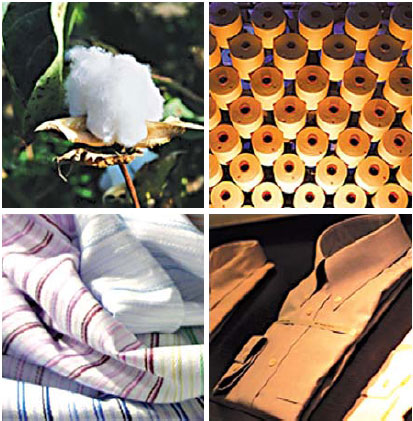


As Esquel shirt making Group's chairman, Marjorie Yang says her continuous task is to prove wrong those who think the sun is setting on China's textile industry.
"In many people's minds China's garment industry is only sweatshops or cheap labor, with no connection to the advanced economy," Yang says.
Yang says the importance of innovating the traditional business is to inspire every one of Esquel's 47,000 employees to excel in their jobs and in innovation.
By injecting technology, design, strategy, research and development into Esquel's routine works, "I want to show that shirt manufacturing is also generated by brainwork," Yang explains.
Since establishing the Esquel Group in 1978, Yang has made a revolution of business management.
"I never tell my employees what they should do, instead, they should tell me what they want the company to achieve in the future," Yang says. Through this way, she says she can inspire her employees to try new things for the company.
Yang says she is only engaging in managing human resources. For years, she spent a lot on manpower training, for both employees in her Hong Kong company and farmers in Xinjiang Uygur autonomous region, workers in Guangdong province and in Malaysia and in Sri Lanka.
What inspired Yang, the Harvard MBA, is a traditional Chinese saying - Giving a man fish will feed him today, yet teaching him how to fish will provide food for a lifetime.
Two years ago, Esquel cooperated with Standard Chartered Bank to launch a microfinance project in Xinjiang Uygur autonomous region, with the target to integrating more financing fundamentals with traditional farming in China's rural areas.
Providing no less than 15,000 yuan, no more than 100,000 yuan for each small loan, a total 200 farmers have already seen their cotton planting improve thanks to modern management.
"In the past, all my life I depended on a tractor, a motorcycle and a cow. But thanks to the loan, I can diversify the variety of cotton, buy better seeds, and sell higher quality cotton to Esquel," says a cotton farmer from Xinjiang Uygur autonomous region.
Esquel also helped build schools and libraries in local communities, as well as sponsoring scholarships to universities in Xinjiang.
It might be hard for a consumer to imagine the shirt he or she wears is generated from high quality cotton that sprang from modern microfinance.
"We encourage people to find new ways of doing things and to question the status quo," according to her.
Yang adds what she feels proudest of achieving in her 30 years with Esquel Group is promoting a higher income for all its employees and people who work in the shirt making chain.
Help shorten the gap of poverty - it should be the one overriding business philosophy for each business leader, she says.
"Focus on making your workers rich and full of creativity, and as a result, your company will perform better," Yang says.
(China Daily 12/29/2008 page12)













